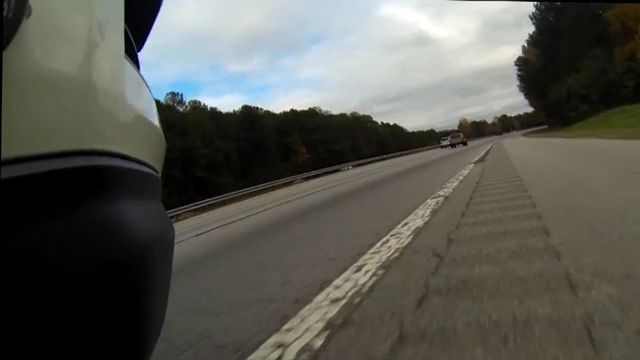Who's driving your taxi? One driver, two crashes and a call for change
Whenever you jump in the back of a taxi or a ride-share, you put your safety in the hands of a stranger. Although the vast majority of trips work out just fine, that isn't always the case, especially when a driver's health is involved.
Posted — UpdatedAlthough the vast majority of trips work out just fine, that isn't always the case, especially when a driver's health is involved.
North Carolina law requires that taxi and ride-share drivers be properly licensed and pass background checks for driving and criminal history, but it doesn’t mandate any medical history because of privacy concerns.
"My jaw dropped. I was just like, this has got to be a joke. There’s no way," said Michael Portera, whose taxi was involved in a 2008 crash.
Portera and his wife jumped in an RDU Taxi at Raleigh-Durham International Airport on Feb. 22, 2008, and were heading east on Interstate 40 when the driver had a seizure.
"He started making some sounds, and those were unintelligible," Portera said, adding that he had to act.
"I quickly jumped up and grabbed the wheel of the taxi to steer it from going over the embankment," he said. "He had this death grip on the wheel, and I said, 'Hold on!' and we suddenly cut through the grass."
The crash report obtained by WRAL Investigates shows the taxi swerved across the median and barely missed a tractor-trailer before getting T-boned by an oncoming car.
"It’s crazy. Twelve years later, but you hear it, and it brings you back," he said of the sound of highway shoulder rumble strips.
Portera suffered back injuries, bruises and more. "The psychological toll was totally, was so much more than the physical, I believe," he said.
In 2015, an RDU Taxi crashed on Western Boulevard in Raleigh, and court records show the same driver from seven years earlier, Hicham Dorhmi, didn’t take his medications and had an another seizure at the wheel.
"Same driver? What? Are you kidding me?" Portera said. "This guy’s still driving after what happened?"
Attorneys for the injured passenger in the 2015 crash went to court against RDU Taxi, where attorney George Simpson argued the company didn’t break any laws.
"They’re not required nor do they ask for a driver’s medical records," Simpson said.
The passenger's attorney, Ann Ochsner, said the case was about more than just the law.
"They do have a duty to their passengers," Ochsner said.
The case was dismissed with no further information, but the outcome doesn’t resolve medical questions about taxi and ride-share drivers.
The North Carolina Division of Motor Vehicles can demand a driver’s medical history and restrict privileges only if notified by someone like a doctor, law enforcement or citizen. That didn’t happen after Dorhmi’s 2008 crash.
Portera said he believes a medical evaluation should be required for people who drive others for living.
"Hopefully, I can be an agent of change," he said.
Raleigh’s taxi permit application now includes questions about health history, including heart problems and epilepsy. However, it’s up to the applicant to answer those questions truthfully. The only form that must be signed by a doctor focuses mostly on the applicant’s vision.
"The risk is too great to have this pretty much unregulated," Portera said. "The probability may be low, but the impact is extremely high. You’re talking about people’s livelihoods and lives."
Public records show that, after the 2015 crash, Dorhmi’s license was suspended. He declined to comment to WRAL Investigates, saying that the case was over.
Related Topics
• Credits
Copyright 2024 by Capitol Broadcasting Company. All rights reserved. This material may not be published, broadcast, rewritten or redistributed.






